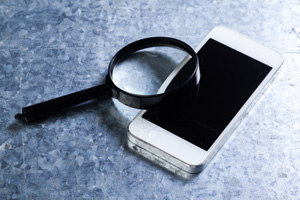
Cell phones are now ubiquitous in our society. They allow us to communicate, play games, watch movies, and even get directions. The downside is that these devices also contain sensitive personal information such as text messages, photos, call logs, GPS locations, and other details. This means police officers can easily retrieve information from your device. Depending on the state where you live and its laws, this might even mean accessing your data without a warrant or court order.
Here are some ways in which police may be able to access information from your cell phone. Knowing what each of these things means will help you make an informed decision about your cell phone usage. It will also empower you to not volunteer information to law enforcement that can be used against you later.
Do the Police Need a Warrant to Track You With Your Cell Phone?
The United States Supreme Court recently ruled that police do not need a warrant to track someone’s cell phone location without probable cause. In Carpenter v. United States, the court held that people have no reasonable expectation of privacy in information about their physical movements that is collected by third parties. This includes information stored on a phone’s SIM card — even though the government must obtain a warrant to access such data.
However, the decision does not address whether police need a warrant to use cell site simulators, which force mobile devices to connect to nearby towers. These tools allow police to determine where a person is located within a set radius. And while the ruling did not directly address these technologies, the court noted that the Fourth Amendment applies to technological innovations, including those involving GPS tracking.
In addition, the decision left unanswered questions about how much protection the Constitution affords against other types of digital surveillance. For example, the court declined to rule on whether police need a warrant for real-time audio recordings of calls placed over a wireless carrier network.
How Do Police Recover Deleted Data From Phones?
The world of forensics is one of the most interesting fields out there because it involves solving crimes and helping law enforcement agencies. There are many different types of evidence that police use to solve cases, including fingerprints, DNA samples, and even cell phones. The latter is especially useful because people often take pictures or record videos while committing crimes.
A lot of times, people will delete those images and videos off their phones, making it difficult for investigators to find evidence against them. However, this does not mean that the data cannot be recovered by forensic analysts. Forensic experts can recover deleted files using specialized software. Most modern smartphones come with built-in file recovery features.
Law Enforcement Access to Third-party Data on My Phone
When it comes to getting access to your communications on third-party apps and software, the Fourth Amendment is not nearly as clear cut as many people think it is. In fact, there are many exceptions to the warrant requirement, including one that allows authorities to look at whatever they want without needing a warrant. This includes emails, texts, photos, videos, voicemails, documents, browser history, call logs, and even location data.
The reason why is because the government does not always need to physically possess something to get it. Instead, it can often just ask whoever owns it to hand over the information. And in some cases, the owner might actually do so voluntarily.
For instance, if you sent a photo to someone via Snapchat, they could get a subpoena to figure out who you sent it to. If you used Facebook Messenger, they could reach out to the social network to find out who you messaged. You can also imagine how easily they could track down the person who took the picture or video on your smartphone.
Schedule a Free Consultation with Rubin, Glickman, Steinberg & Gifford For Legal Help
Your cell phone is an important part of your everyday lifestyle. It provides you with access to the internet and your personal information, whether it is strictly private or not. As digital devices become more common, police will continue to use them as a way to find out about people and their activities.
If you or a loved one has been involved in a police investigation where the police want access to your phone, it is important to make sure that the correct process is followed. Having an experienced and knowledgeable legal team on your side can help. Contact Rubin, Glickman, Steinberg & Gifford immediately to ensure that you only provide police access to what is necessary and legal. Call us at (215) 822-7575 or submit our contact form to schedule your consultation.









